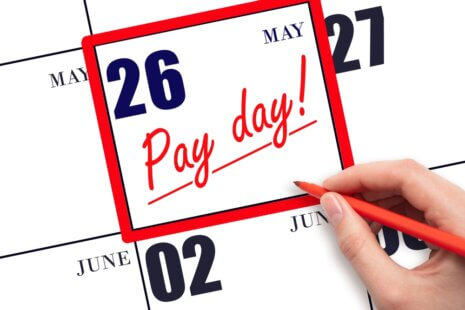The best way to pay yourself as a business owner depends on various factors, including your business structure, profitability, cash flow, tax considerations, and personal financial needs.
Here are some common methods for paying yourself as a business owner…
- Owner’s Draw or Distribution –
- If you’re a sole proprietorship, partnership, or LLC taxed as a disregarded entity, you can typically pay yourself through owner’s draws or distributions. This involves withdrawing funds from the business’s profits or equity to cover personal expenses.
- Owner’s draws are not considered salary or wages, so they are not subject to payroll taxes such as Social Security and Medicare taxes. Instead, they are treated as distributions of profits and are reported as such on your personal tax return.
- Salary or Wages –
- If you operate as a corporation (either a C corporation or an S corporation), you may pay yourself a salary or wages as an employee of the company. This involves establishing a formal employment relationship and complying with payroll tax withholding and reporting requirements.
- Paying yourself a salary or wages allows you to take advantage of employee benefits such as retirement contributions, health insurance, and payroll tax deductions. However, you’ll be subject to payroll taxes on your salary, including Social Security and Medicare taxes.
- Combination of Draw and Salary –
- Some business owners choose to use a combination of owner’s draws or distributions and salary or wages to pay themselves. This approach allows for flexibility in managing personal cash flow, tax planning, and retirement savings.
- By taking a modest salary and supplementing it with periodic owner’s draws or distributions, you can strike a balance between minimizing payroll taxes and ensuring a steady income stream.
- Dividends –
- If your business is structured as a corporation, you may receive dividends as a distribution of profits to shareholders. Dividends are typically paid out of after-tax profits and are subject to dividend tax rates, which may be lower than ordinary income tax rates.
- Dividends provide a tax-efficient way to distribute profits to shareholders, but they may be subject to certain limitations and restrictions, depending on the corporation’s earnings and financial position.
When determining the best way to pay yourself as a business owner, it’s essential to consider your business’s legal structure, tax implications, cash flow needs, and personal financial goals. Consulting with a tax advisor, accountant, or financial planner can help you develop a compensation strategy tailored to your specific circumstances and optimize your overall financial situation. Staying informed about changes in tax laws and regulations can help you make informed decisions about your business’s compensation practices.




